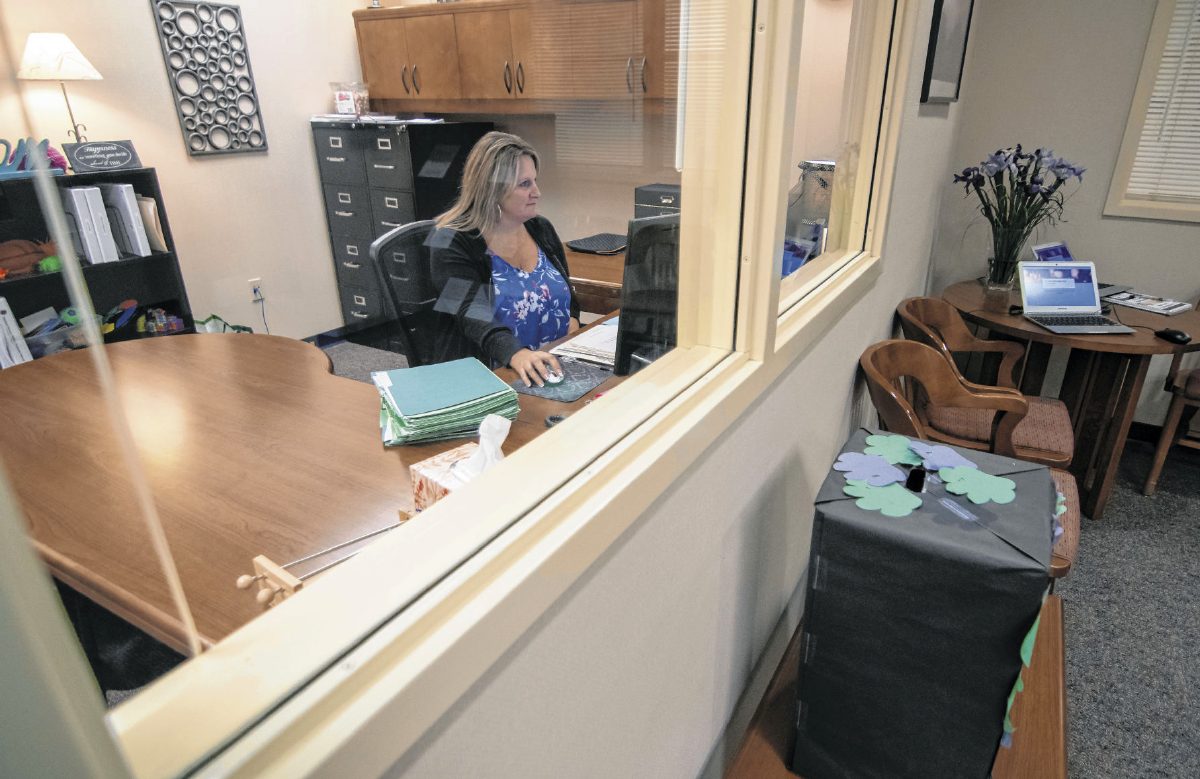Teachers at two Franklin schools are putting intentional effort into changing how they respond to students who have trouble behaving.
Instead of issuing a consequence, teachers at Custer Baker Intermediate School and Needham Elementary School are going to dig a little deeper to try to determine what is causing the misbehavior, so that the student can be helped in addressing root problems, said Dylan Purlee, Needham Elementary School principal. The protocol is used by schools nationwide and is called Collaborative and Proactive Solutions.
Purlee first gained interest in Collaborative and Proactive Solutions after teacher Dianna Bennis recommended one of Dr. Ross Greene’s books, “Lost in School,” which outlines those strategies, he said. Greene developed the protocol being implemented.
[sc:text-divider text-divider-title=”Story continues below gallery” ]Click here to purchase photos from this gallery
“If a student is struggling with games at recess and losing and inappropriately begins being verbally aggressive and using bad words, instead of taking recess away when you don’t get an opportunity to practice the skill, you continue recess with the adult to help support them and teach them how to lose and teach them what to do socially when you lose,” Purlee said. “It’s about what’s appropriate for school versus what’s not appropriate for school.”
The book outlines other examples of that teaching strategy, said Cheryl Moran, principal of Custer Baker Intermediate School.
In one example, a teacher found out that a student who wouldn’t work in class was doing so not out of a refusal to learn, but because of a sensory issue that was triggered by the sound of an unsharpened pencil on a page. Instead of punishing that student by sending him or her to the principal’s office, the teacher was able to identify that trigger and make sure the student kept their pencil sharpened, Moran said.
“I’ve been in education 28 years and too many times people think ‘that’s just Johnny and he does that,’” Moran said. What does he need to solve this problem and not make the same mistakes? I don’t think we’ve approached that behavior systematically to have a mind-shift in thinking. Instead of thinking kids choose to be bad, they don’t have the skills they need to solve the problems he or she has.”
After reading the book, Purlee got in touch with Greene and his associates, which provides training via video sessions. As part of the training, teachers read the book and will soon undergo a 15-week process of watching videos from Collaborative and Proactive solutions, which will present behavioral scenarios and will ask teachers how they would respond in those situations, Purlee said.
At Needham, eight school staff members, including classroom teachers, instructional assistants and school psychologists, will be trained and start implementing those behavioral strategies before the end of the semester, Purlee said.
Custer Baker Intermediate School will be ready to start using the methods from the training sometime during the spring semester. Eight to ten Custer Baker staff members will be trained, Moran said.





